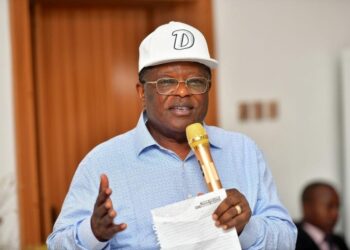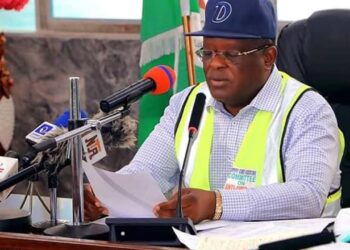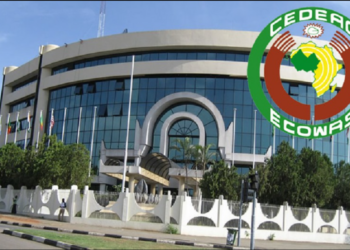Nigeria’s 79-kilometre stretch of the proposed Abidjan-Lagos Corridor Highway will be executed through a shared responsibility among the Federal Government, Lagos State Government, and the Federal Roads Maintenance Agency (FERMA).
This was disclosed by the Federal Controller of Works in Lagos State, Mrs. Olukorede Kesha, during an interview with the News Agency of Nigeria (NAN) on Thursday.
According to Kesha, the Federal Government will take charge of the 46.2-kilometer stretch from Agbara to Seme Border, while the Lagos State Government will be responsible for the 10-kilometer section from Eric Moore to Igbo Elerin. Meanwhile, FERMA will manage the Okokomaiko to Agbara segment of the corridor.
The Abidjan-Lagos Corridor Highway, a major infrastructure project under the Economic Community of West African States (ECOWAS), will span over 1,028 kilometers, connecting key economic centres across Côte d’Ivoire, Ghana, Togo, Benin, and Nigeria. The project is a core component of regional efforts to boost trade, integration, and mobility in West Africa.
“According to Kesha, Nigeria’s side of the Abidjan-Lagos Corridor Highway Development Project is a 79km stretch starting from Eric Moore in Lagos State and ending at Seme Border,” the NAN report read in part.
It added, “The federal controller of works said that the 46.2km section of the Nigerian side of the highway project – from Agbara to Seme – had been awarded to a contractor by the Federal Government.
“She said that the Okokomaiko to Agbara section was being overseen by the Federal Roads Maintenance Agency. She added that the Eric Moore to Igbo Elerin section, a 10km stretch, was being handled by the Lagos State Government.”
Providing further insights into the proposed project, Kesha highlighted that the design phase for Nigeria’s portion of the highway is scheduled for completion by May 2025, after which construction will commence.
More insights
The original plan for the highway envisioned a 10-lane carriageway, complete with dedicated lanes for light rail and Bus Rapid Transit (BRT) systems.
- Kesha, however, explained that the current design for Nigeria’s section features three lanes, with the possibility of future enhancements to include service lanes and integrated public transport corridors such as BRT and light rail—measures aimed at improving accessibility for communities along the route.
- Once completed, the project is expected to significantly reduce travel time, lower transportation costs, and stimulate economic growth across the region by improving connectivity, facilitating cross-border mobility, and promoting trade.
This vital corridor is also set to strengthen the economic link between Lagos, Nigeria’s commercial hub, and Abidjan, supporting broader integration within West Africa.
What you should know
The Abidjan-Lagos Corridor Highway is projected to cost $15.6 billion and spans 1,028 kilometers across five West African countries—Côte d’Ivoire, Ghana, Togo, Benin, and Nigeria.
- In November 2024, a report presented during a virtual workshop hosted by the African Development Bank (AfDB) and project partners disclosed that $6.8 billion of the total funding will need to come from the private sector.
- The highway will feature 63 interchanges, and it is expected to accommodate over 500,000 passengers daily and generate up to 70,000 direct and indirect jobs.
- In September 2024, ECOWAS Heads of State met in Lagos to finalize the project’s design and prepare for procurement. The session was chaired by Nigeria’s Minister of Works, Dave Umahi, with construction targeted to begin in 2025.
The highway forms part of the larger Dakar-Lagos Corridor and is expected to drive economic growth by improving cross-border trade, reducing travel time, and facilitating the movement of goods and people across West Africa.

























